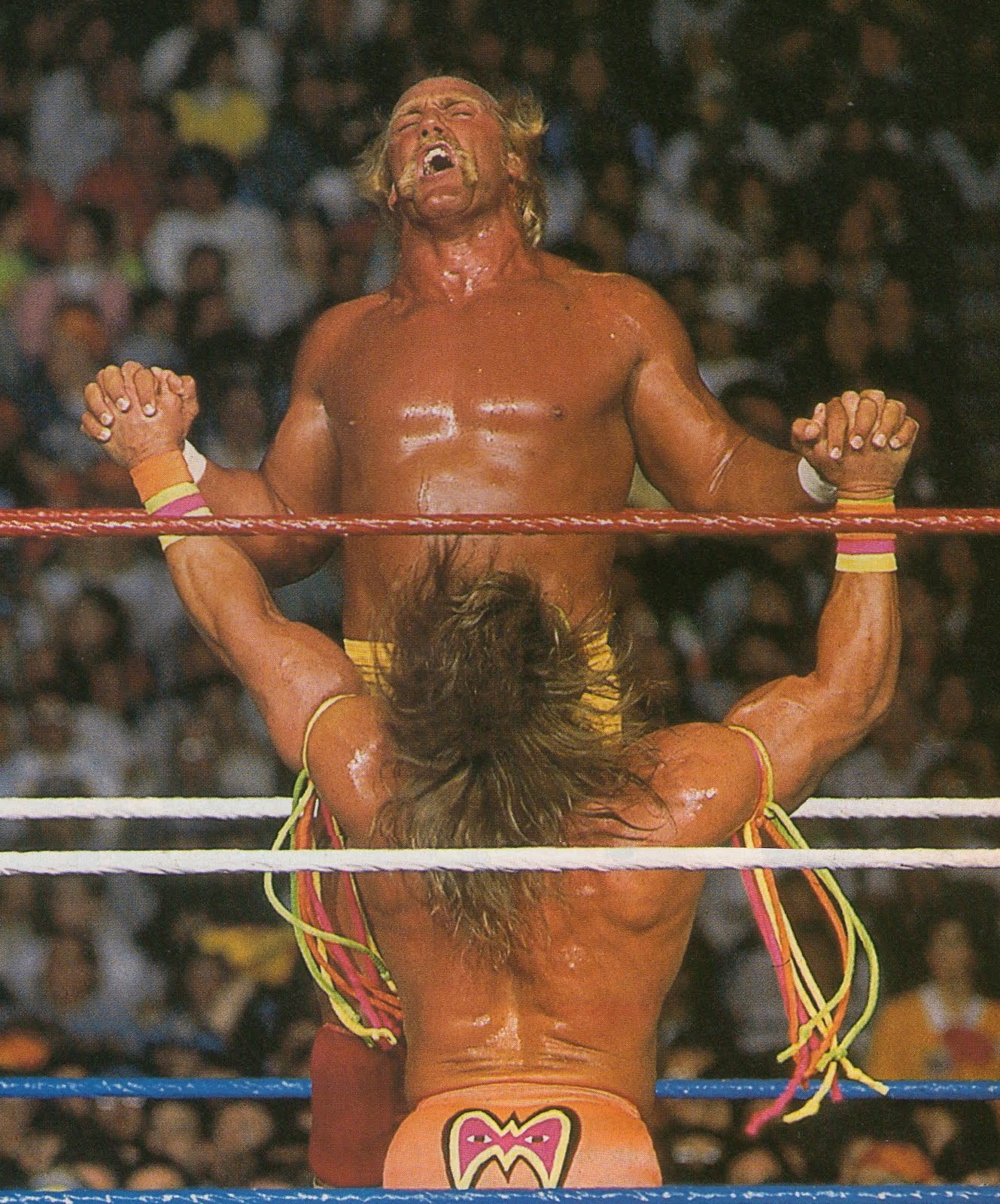For much of the 1980s into the early '90s, Hulk Hogan served as the supreme champion of World Wrestling Entertainment and the recognizable face of an industry that was rapidly gaining global appeal. His larger-than-life persona and charisma transformed him into a household name, captivating audiences worldwide. However, his reign was not without challenges, as iconic figures like Andre the Giant and "Macho Man" Randy Savage posed serious threats to his dominance in the ring.
One of the most significant rivalries in wrestling history began when Ultimate Warrior emerged as a formidable contender. This rivalry not only showcased their wrestling skills but also illustrated the personal and professional conflicts that can arise in the world of sports entertainment. As the Ultimate Warrior prepared to challenge Hogan, the landscape of professional wrestling was about to change forever.
The tale of these two wrestling icons is not just about titles and championships; it’s a story of ambition, rivalry, and eventual reconciliation. The paths they took in their careers, including the highs and lows, offer valuable lessons about resilience and the ever-changing nature of fame in the wrestling industry.
Table of Contents
- Biography of Hulk Hogan
- The Rise of Ultimate Warrior
- Warrior Takes the Title from Hogan
- Warrior's List of Demands
- Decline After Suspension
- Documentary on Ultimate Warrior
- Reunion Before Death
Biography of Hulk Hogan
Hulk Hogan, born Terry Gene Bollea, is a legendary figure in the world of professional wrestling. He was born on August 11, 1953, in Augusta, Georgia. Hogan's career skyrocketed in the 1980s, making him the face of wrestling as he headlined major events and became a cultural icon.
| Attribute | Details |
|---|---|
| Name | Hulk Hogan |
| Real Name | Terry Gene Bollea |
| Date of Birth | August 11, 1953 |
| Height | 6 ft 7 in (2.01 m) |
| Weight | 302 lb (137 kg) |
| Debut | 1977 |
| Notable Championships | 6-time WWE Champion |
The Rise of Ultimate Warrior
Ultimate Warrior burst onto the wrestling scene in the mid-1980s, quickly becoming a fan favorite. His unique look, characterized by face paint and an energetic entrance, set him apart from other wrestlers. Initially known as the Dingo Warrior in World Class Championship Wrestling, he soon transitioned to WWE, where he captivated audiences and earned significant accolades.
Warrior's rapid rise to fame was marked by his intense persona and unmatched athleticism. In 1988, he became the Intercontinental Champion by defeating the Honky Tonk Man in a record-breaking 30 seconds at SummerSlam, solidifying his status as a top contender. By 1989, he was poised to challenge Hogan for the heavyweight title, setting the stage for one of wrestling's most anticipated matches.
Warrior Takes the Title from Hogan
On April 1, 1990, Ultimate Warrior faced Hulk Hogan at WrestleMania VI, in front of nearly 70,000 fans at Toronto's SkyDome. This match was billed as a monumental clash between two of wrestling's biggest stars. Warrior showcased his incredible resilience by countering Hogan's powerful moves and ultimately executing his signature "Warrior Splash" for the victory.
The match not only crowned Warrior as the new champion but also marked a significant shift in the wrestling landscape. Hogan, who had dominated the industry for years, graciously handed over the championship belt, signaling the end of an era and the rise of a new champion.
Warrior's List of Demands
After his title win, Warrior faced challenges in managing his new status. Frustration over his treatment in WWE led him to send a letter to CEO Vince McMahon, outlining his demands for equal treatment comparable to Hogan's. He expressed his discontent over financial matters and the expectations placed upon him as a champion.
This period of turmoil culminated in a public incident where Warrior snapped at a young fan, resulting in a forced apology. His demands, including a substantial fee to participate in SummerSlam, highlighted the pressures of maintaining stardom in the wrestling business.
Decline After Suspension
Warrior's career took a downward turn following his demands for better treatment. Vince McMahon issued a letter during a scripted segment at SummerSlam, detailing Warrior's unprofessional conduct and announcing a 90-day suspension. This marked the beginning of a series of setbacks for the once-prominent star.
Despite a comeback at WrestleMania VIII, Warrior faced another suspension for drug-related issues. His struggles continued as he was ultimately released from WWE, leading to a brief stint in World Championship Wrestling.
Documentary on Ultimate Warrior
Years after his wrestling career, WWE released a documentary titled The Self-Destruction of the Ultimate Warrior, which featured interviews and reflections from various wrestling peers. The documentary portrayed a candid and often unflattering view of Warrior's career, showcasing the challenges he faced both in and out of the ring.
Among the notable quotes from the documentary, Hogan remarked on Warrior's championship win at WrestleMania VI, revealing the mixed feelings within the wrestling community about Warrior's legacy. The film served to distance WWE from Warrior's brand while providing insights into the complexities of his career.
Reunion Before Death
In a remarkable turn of events, Warrior accepted an invitation to be inducted into the WWE Hall of Fame in April 2014. This moment marked a significant reconciliation between him and Hogan, as they embraced and put aside past grievances. Hogan expressed his regrets regarding the documentary and the impact it had on Warrior's legacy.
Tragically, just days after this reunion, Warrior passed away from a heart attack. Hogan paid tribute to Warrior on social media, highlighting their moments of forgiveness and camaraderie. This poignant end to Warrior's story serves as a reminder of the complexities of relationships within the wrestling industry.
Exploring The Life And Expeditions Of Louis Joliet (1645-1700)
The Life And Legacy Of Kahlil Gibran: A Journey Through Art And Poetry (1883-1931)
Exploring The Life And Legacy Of Wilhelm Grimm (1786-1859)


